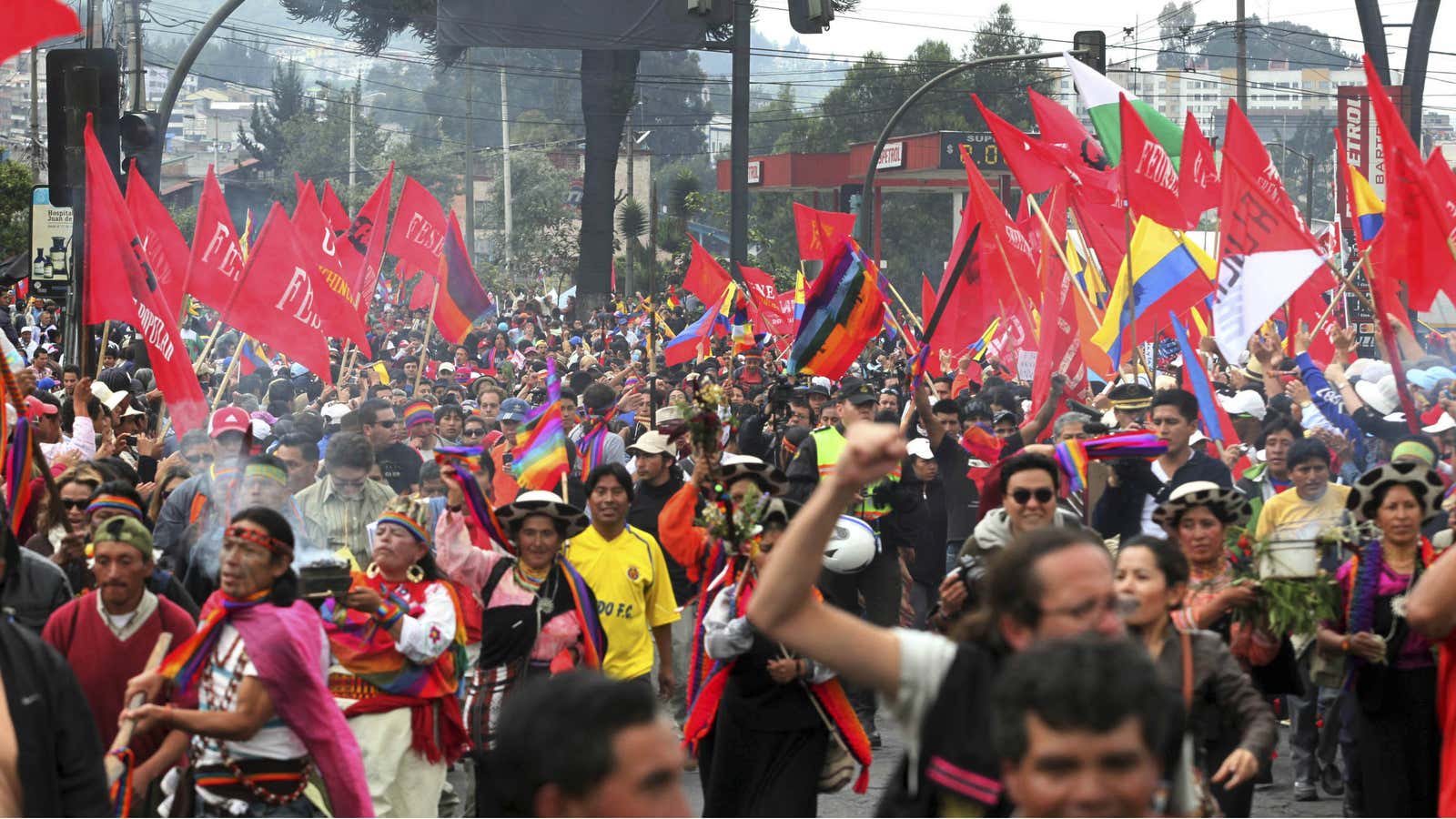Last week the leader of an Ecuadorian indigenous group, José Isidro Tendetza Antún was found by his son in an unmarked grave. The outspoken critic of a controversial Ecuadorian mining project had been due to speak at the United Nations climate talks in Lima this week. Authorities said that the circumstances of his death are still unclear, but it is certain to draw more attention to Chinese-funded resource extraction in the Andean nation.
Tendetza’s death is at least partly related to what critics say is Ecuador’s unhealthy dependence on China. The country—once hailed for a ”green constitution” that protected the environment and pledged to prosecute those that harm the country’s biodiversity—has more recently turned to exploiting its supplies of oil, gas and minerals to pay off its massive debts, mostly owed to China.
The project that Tendetza opposed, the Mirador open pit copper mine, is being built by a Chinese-owned mining firm, Ecuacorriente, and will require the stripping of about 450,000 acres of forest in the southern Amazon, which is home to Tendetza’s indigenous group, the Shuar. The area is expected to hold about 2.15 million tonnes (2.36 million tons) of copper.
Tendetza is the third vocal critic of the mining project to have died over the last few years, after the killings of Shuar critics Bosco Wisum in 2009 and Freddy Taish last year. Protesters and NGOs have sent letters to the six Chinese banks involved as well as the China Banking Regulatory Commission, asking for a meeting. Months later, the only response was from the Bank of China, asking for the English-language letter to be translated into Spanish.
